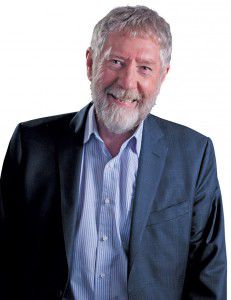“Compared to other jurisdictions, the ACT Labor Party has been at the forefront of reforms around alcohol-related violence. But there is a long way to go.”

Such promises are invariably distilled into slogans that fail to go to the root cause of the issues. And, in many cases, the community has to live with the consequences.
Consider the one-punch problem. It is a travesty that this cowardly phenomenon continues. In one of the first strikes for the 2016 ACT election, Opposition Leader Jeremy Hanson has declared the Liberals will move to increase the maximum jail term for the offence to 25 years. He cited “a problem in the community with the unprovoked, violent assaults also known as ‘coward punch’ or ‘king hit’ attacks”.
Increasing jail sentences does have some deterrent effect. However, it is minor.
On the flip side, “tough-on-crime” policies increase the size of the prison population, have little impact on preventing the problems, massively impact on budgets and provide a “school for scoundrels”.
What is needed are policies that attack the root cause of the problem. The most important of these is the widespread and ready availability of alcohol and other drugs.
At least the response from Minister Simon Corbell showed some attempt to deal more appropriately with the issue. He said the government was focusing on prevention and addressing alcohol abuse in the community. “The government’s response is not grandstanding on penalties. It’s about a focus on improving our liquor licensing laws to reduce and prevent the harm in the first place,” he said.
Compared to other jurisdictions, the ACT Labor Party has been at the forefront of reforms around alcohol-related violence. But there is a long way to go.
Will a major political party ever be prepared to really seriously take on the incredibly powerful alcohol lobby?
Prof Kypros Kypri, of Newcastle University, has demonstrated through his own study in Newcastle (and by reference to similar studies around the world) the impact on street violence of setting closing times at 3.30am with a 1.30am ban on new clients in an establishment.
In a study he published in the prestigious international journal “Drug and Alcohol Review”, it was revealed that by changing the closing times from 5am to 3.30am, there was a third reduction in serious violent incidences.
There was a commensurate reduction in treatment in emergency at the local hospital.
Others estimate the impact would have been much more considerable had the closing time been reduced to 2am. However, although Prof Kypri makes very clear that a series of changes, including a restriction on “shots”, worked together, the real difference was earlier closing times. In a piece on “The Conversation” website, he states categorically: “Earlier closing times, or at least stopping alcohol sales earlier, is the key to preventing assaults”.
The other opportunity to grab headlines in an election year is to blame the “Ice epidemic” and call for tougher measures, more police and greater penalties.
At least the Federal Liberal government has recognised that dealing with the causes is more effective than harsher penalties.
Only a couple of months ago the Assistant Minister for Health, Senator Fiona Nash, announced a serious focus on treatment rather than spending even more on policing. Of an overall expenditure of $285.2 million, she set aside the lion’s share ($254.5 million) for treatment.
A comprehensive approach based on harm reduction is the most effective way of dealing with both alcohol and illicit drugs.
Australia has fared well when the approach includes all three elements: supply reduction, demand reduction and harm reduction.
Prohibitionist policies, tough-on-crime approaches and simple slogans may make good politics in an election campaign.
They have an immediate appeal. But like so many simple, straightforward solutions to complex problems – they simply do not work.
Often they exacerbate the issue. However, the danger is that they do have the potential to improve chances at an election.
The ACT is a sophisticated electorate. Let’s hope that as many of the candidates as possible standing for the 25 seats for election on the third Saturday in October this year, offer a more thoughtful approach than many of those seen in previous elections.
Michael Moore was an independent member of the ACT Legislative Assembly (1989 to 2001) and was minister for health.
Who can be trusted?
In a world of spin and confusion, there’s never been a more important time to support independent journalism in Canberra.
If you trust our work online and want to enforce the power of independent voices, I invite you to make a small contribution.
Every dollar of support is invested back into our journalism to help keep citynews.com.au strong and free.
Thank you,
Ian Meikle, editor





Leave a Reply